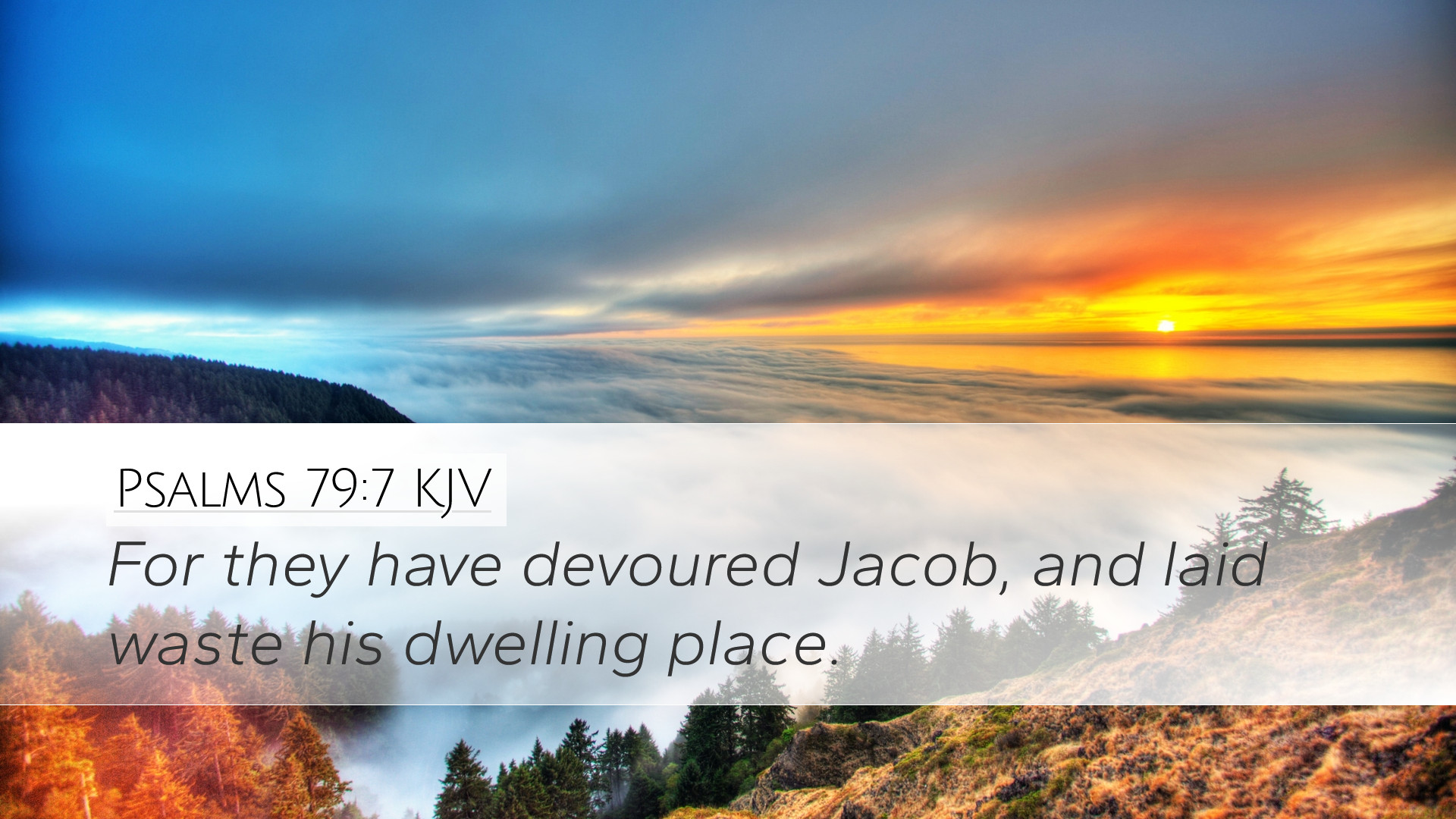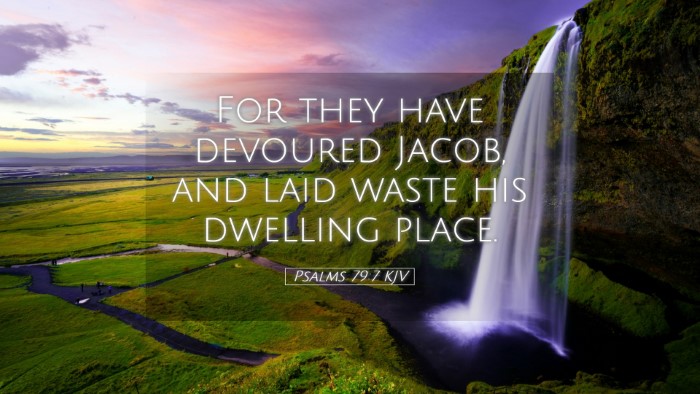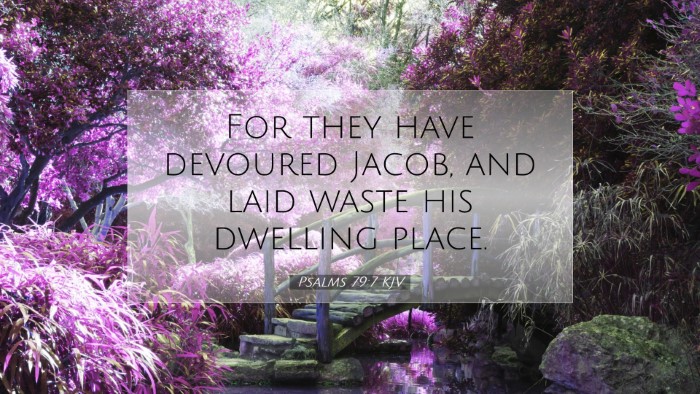Commentary on Psalms 79:7
Psalms 79:7 states, "For they have devoured Jacob and laid waste his dwelling place." This verse expresses the deep anguish and distress of the psalmist over the devastation suffered by the people of God and the city of Jerusalem at the hands of their enemies.
Contextual Analysis
This psalm is categorized as a communal lament, reflecting the suffering of the Israelites post-exile. It seeks divine intervention during a time of great loss and desolation.
Historical Background
The historical backdrop of this psalm is critical to understanding its meaning. It likely refers to the Babylonian invasion of Jerusalem, where the temple was destroyed and God’s people faced significant oppression.
Insights from Matthew Henry
Matthew Henry emphasizes the importance of the corporate identity of Israel. He notes that the destruction of Jacob—symbolizing the nation—implies a direct assault on God's covenant people.
- Corporate Lament: The lament reflects not just personal grief, but community suffering, highlighting the collective relationship between God and His people.
- Divine Justice: Henry also points out a theological dimension, alluding to God's righteousness in allowing the devastation as a consequence of sin, urging contemplation of Israel's unfaithfulness.
Insights from Adam Clarke
In his commentary, Adam Clarke delves into the poetic structure of the verse, illustrating how the imagery of devastation serves not only to convey the physical destruction but also the spiritual desolation experienced by the people.
- Imagery of Devastation: Clarke describes the "devouring" of Jacob as a metaphor for complete annihilation, indicating total triumph of the enemy over the nation.
- Spiritual Implications: Clarke argues that the laying waste of God's dwelling represents a profound spiritual crisis, where the sanctuary of the Lord becomes a desolate place, symbolizing the absence of divine presence.
Insights from Albert Barnes
Albert Barnes addresses the conceptual framework of the verse by interpreting "Jacob" as a representation of the covenant nation which faces existential threats.
- Reflection of Suffering: Barnes highlights that the anguish expressed in this verse illustrates the sorrow of a nation remembering its former glory versus its current humiliation.
- Covenantal Faithfulness: Touching on the theme of covenant, Barnes notes that the destruction serves as a reminder of God’s promises and the urgency of returning to faithfulness.
Theological Reflections
This verse raises significant theological questions regarding divine sovereignty and human suffering. How does one reconcile the destruction of God’s people with His omnipotence and love?
- The Mystery of Suffering: The commentary invites readers to explore the mystery behind suffering, urging a deepened faith even amidst adversities.
- Hope Amidst Despair: Despite the grave situation, the psalmist's cry is not devoid of hope; it reflects a longing for redemption and restoration.
Applications for Today
In the context of modern faith communities, Psalms 79:7 invites reflection on how contemporary believers face societal challenges and personal crises.
- Collective Responsibility: Much like the Israelites, today’s church must acknowledge its communal identity and responsibility in advocating for justice and mercy.
- Redemptive Evangelism: This psalm can encourage believers to actively seek God’s presence in their suffering and advocate for those experiencing injustice and desolation.
Conclusion
Overall, Psalms 79:7 serves as a profound reminder of God's ongoing relationship with His people amid devastation. The insights from the commentaries encourage thoughtful reflection on the corporate nature of suffering, the importance of faithfulness, and the hope for restoration and redemption.


